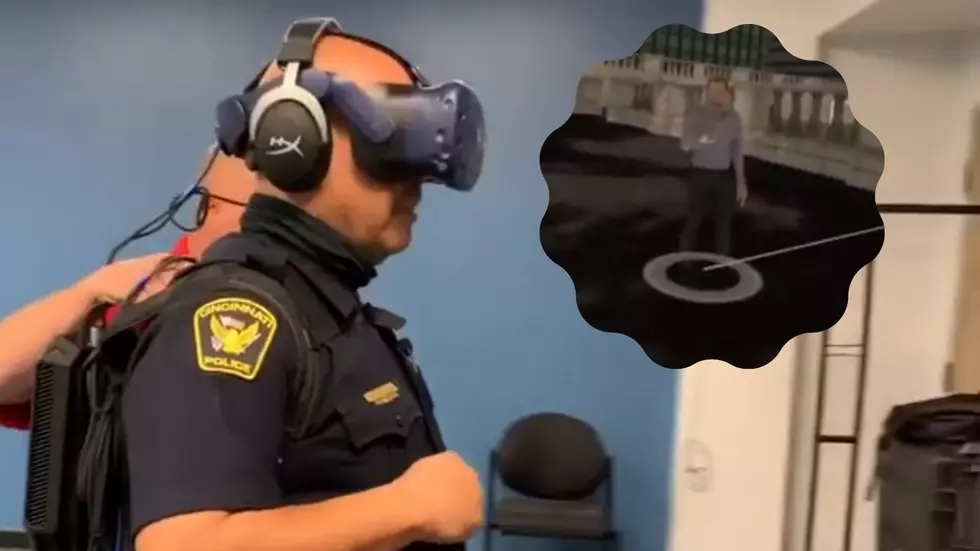
Portage Public Safety Department Using VR Technology For De-Escalation Training
Virtual Reality isn't what it used to be. When you see it fully spelled out, maybe it conjures memories of the old 1980s wire-frame computer graphics, and Max Headroom clips.
Today's Virtual Reality (shortened to VR) is leaps and bounds above the days of Tron, and is SO realistic in some instances, that companies are even using it as "real-world" training scenarios. In fact, the Portage Police Department is now one of those entities, and they're using it to train officers in de-escalation tactics.

A lot more focus has been on police departments over the past few decades concentrating more on de-escalating tense situations, rather than immediately turning to physical altercations, shouting commands, and even violence in some cases.
The problem is, de-escalation scenarios are difficult to replicate in a way that feels authentic while training. The "victim" in the role-playing is typically bound to a script when in reality, we all know that's not always the case. Every situation is unique.
So, that's where VR comes in with Police training. "Apex Officer" is a system that Portage Public Safety has recently bought into, that will allow police to "work" in those unique situations, in an attempt to de-escalate a situation on a call.
It helps officers find indicators of what a person might be dealing with, such as drugs and alcohol, mental illness, or simply in distress. As we've seen in so many scenarios publicly documented in the past decade, many injuries and even deaths could have been avoided had more officers been given additional training in de-escalation.
Per an interview with Sgt. Mike Collier at WWMT:
"It allows that officer to do it in a safe training environment without a lot of hazards of being out on the street, having the unpredictability, you can control the environment and they can handle those situations here in a safe training environment before they handle them out on the street...
"The officer can go through de-escalation tactics and actually have a conversation with the avatar... talk them into custody. Get them to comply, follow commands."
Collier went on to say this system will help identify deficiencies in officer training, and even assist with trainers to know where to focus when they aren't using VR.
"Here, you can push the pause button. You can't do that out in the streets."
... which is both comforting, and a bit scary when you look at it. Comforting, in that officers observing the training can stop at any time to identify those "teachable moments." But a bit scary, when you think about one of these officers in an ACTUAL tense scenario, and he just stops and yells "PAUSE."
All seriousness, though, this is a great idea, and I hope more departments get on board with this idea to help keep our communities safer, and a little more at ease.
Apex Officer currently distributes to multiple departments across the country, including departments in Cincinnati (See below), and even the NYPD.
Michigan's (and America's) First Police Dispatch, Belle Isle
More From WKFR







